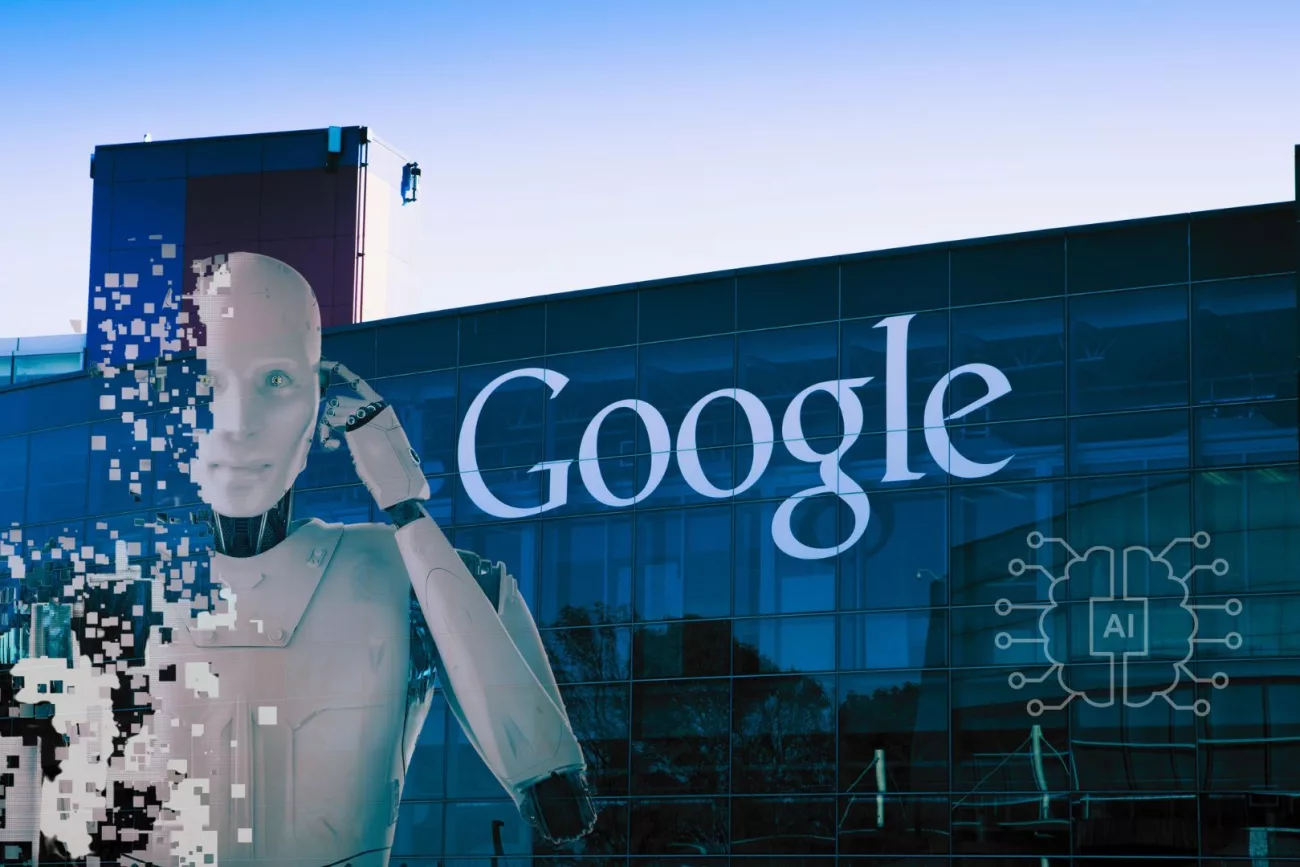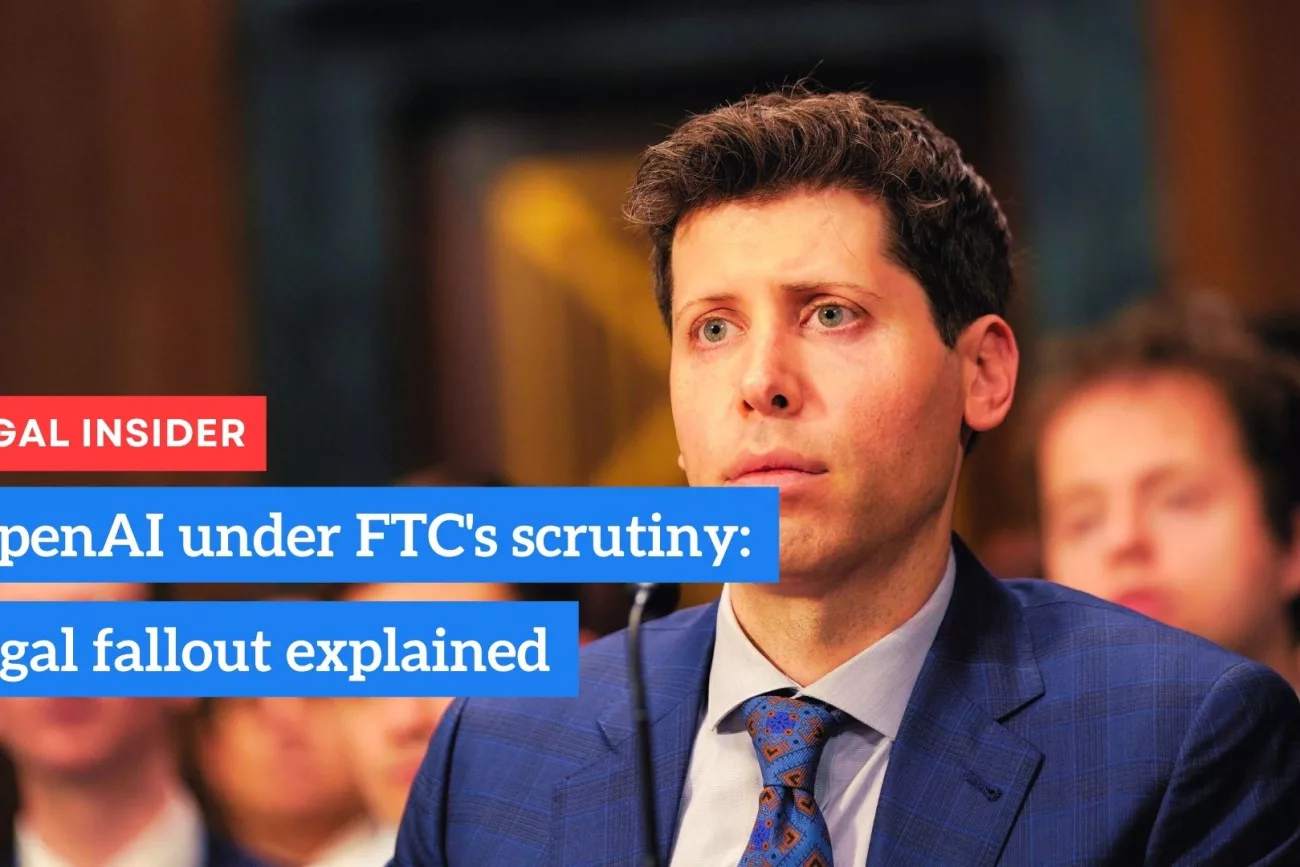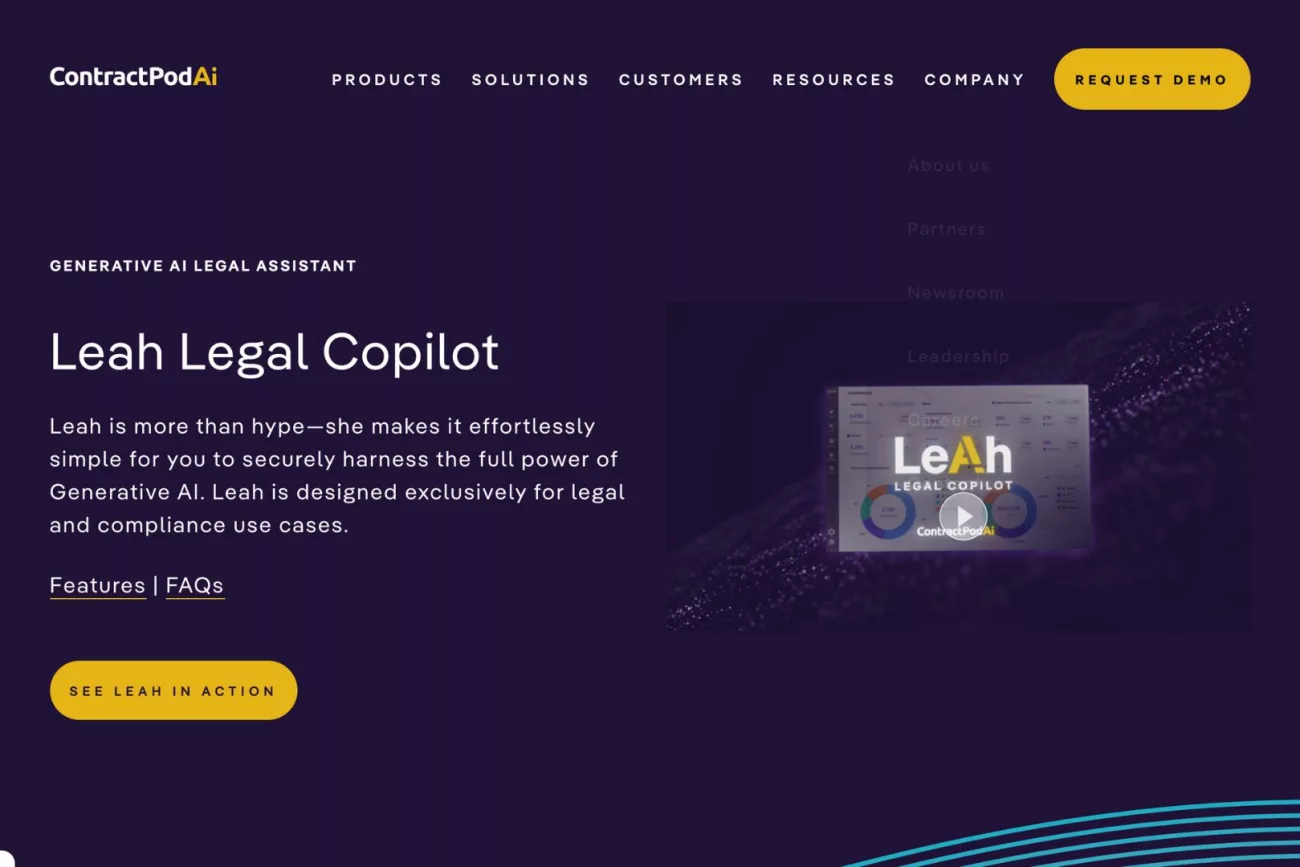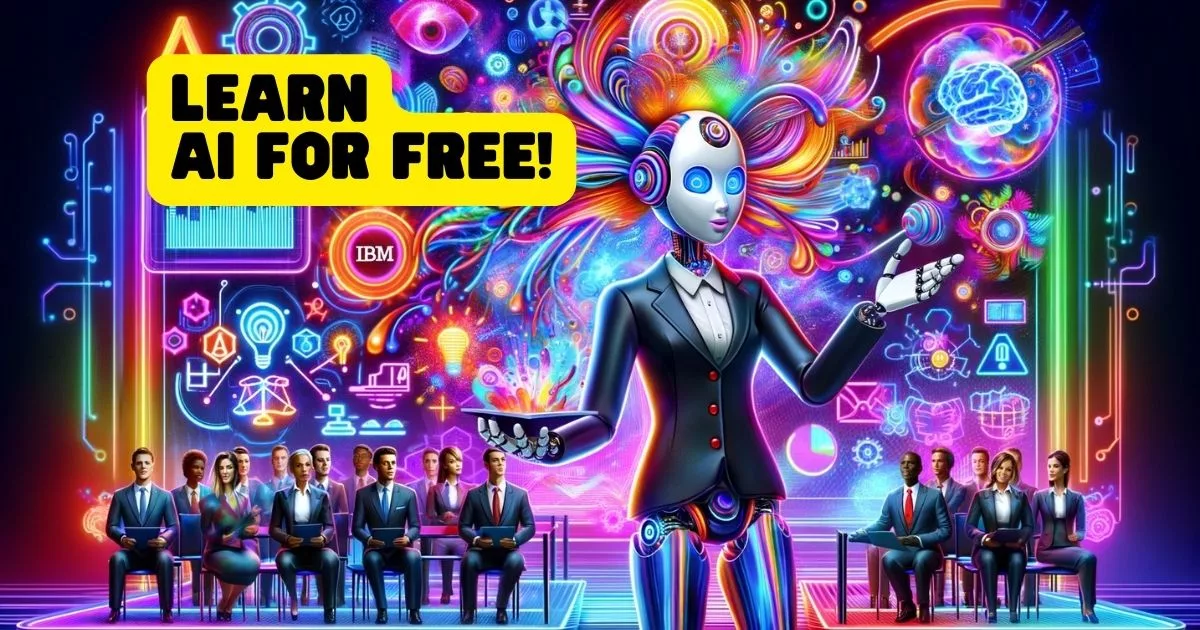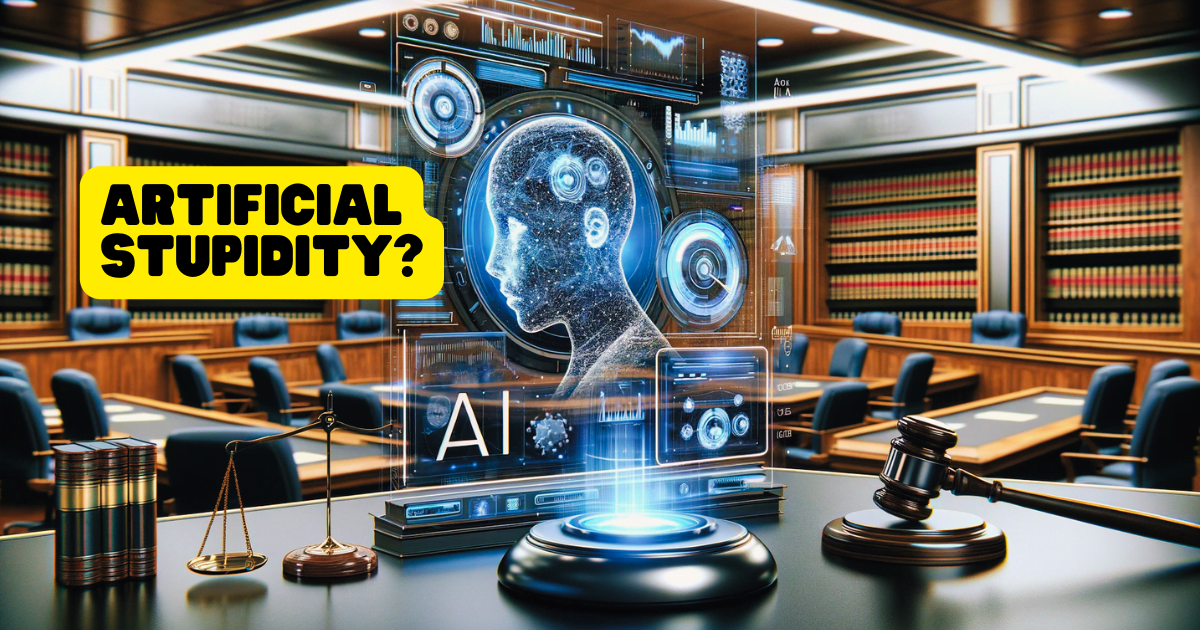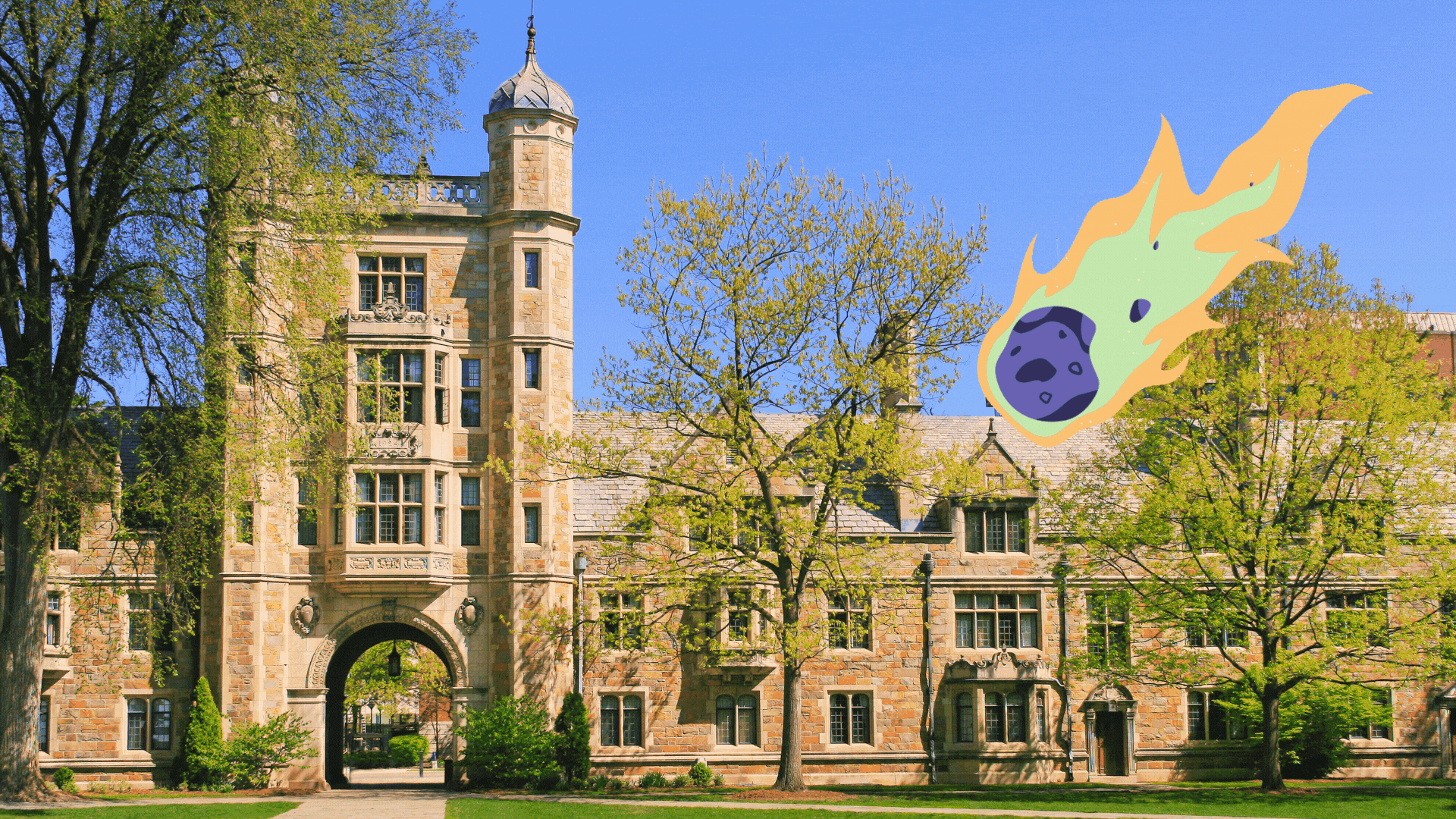
Key Points:
- Law schools are in a tug-of-war over integrating AI tools like ChatGPT into the academic and application processes.
- There’s a polarization in policies: some institutions ban AI in applications, while others embrace or neutrally address it.
- Professors and industry experts emphasize the ethical use of AI and the need to understand its capabilities and limitations.
- The integration of AI into the legal sector is inevitable, but its role in academia is a topic of hot debate and continuous evolution.
🤖 The ChatGPT Conundrum: When Artificial Intelligence Meets the Courtroom 🏛️
Digital Dilemma: AI’s Role in University Admissions
In an era where technology infiltrates every aspect of our lives, higher education institutions face a unique conundrum: to harness or halt the might of Artificial Intelligence (AI) in the admissions process. With the potential to reshape traditional application norms, AI presents both a boon and a bane. Dive into this comprehensive overview of how the esteemed halls of academia across the globe are responding to this digital enigma.
In an age where young lawyers find themselves torn between traditional jurisprudence and silicon-based intelligence, law schools are in a whirlwind. The technology might be savvy, but should it be setting precedents?
AI in the Courtroom: A Gavel or a Glitch?
Trending Tech Tools:
Legal eagles, gather around because this is about to get juicy! Law schools are grappling with the big AI question – to embrace or exile? With AI software pushing boundaries faster than a law student chugging coffee during finals week, it’s high time we decide on where we stand.
Dive into the Data:
Digital Defense: In a 2021 survey conducted by LegalTech, it was found that a whopping 70% of the law firms employed AI tools for tasks ranging from data analysis to drafting briefs. The tech tide is high; can schools afford to stay dry? 🌊
Mistake or Malpractice? The audacious escapade of the NY lawyers isn’t isolated. Back in 2020, the International Legal Council reported that 15% of AI-generated legal documents contained errors that could lead to potential lawsuits. An intriguing paradox of tech-led efficiency pitted against potential pitfalls.
Spicy Stat: That NY case sure raised eyebrows! Slapped with a $5,000 fine for letting AI go rogue with fictional case references? That’s a “techno-oops” moment we won’t forget. 🚫👻
Federal Fences:
The gavel drops, and the courtroom listens! Esteemed federal judges have been raising the bar (pun intended) and echoing what many in the industry feel – there’s a fine line between AI assistance and AI assurance. And crossing it? Well, those NY lawyers learned the hard way.
Here’s the big question: With judges sporting “Techno-Ethics” badges, should law schools be teaching this too? 🎖️
Spotlight Stories:
Case Close-up: Remember when a high-profile corporate lawsuit in Texas, 2019, was almost dismissed because the defense relied heavily on an AI tool which overlooked a crucial precedent? An eleventh-hour manual review saved the day, but it was a stark reminder of the double-edged sword that is AI.
Witness the AI: Across the pond, in a landmark 2020 case in the UK, an AI tool was allowed as a ‘virtual witness’ to validate data patterns. It was revolutionary, showcasing AI’s potential, but it also sparked fierce debates on the reliability and the possibility of manipulation. 🤖⚖️
Did You Know?
AI isn’t just making coffee runs redundant! It’s your silent assistant for e-discovery, your wizard for contract crafting, your maestro in reviews, and so much more. In fact, a staggering 90% of routine legal tasks can be automated today, as per a TechLaw report. Now that’s food for thought, isn’t it? 💡🍎
The AI Classroom: Catalyst or Catastrophe?
The AI Adoption:
From lecture halls to virtual chat rooms, the AI wave is more than just a tech trend; it’s transforming how we approach legal education. But as law school authorities grapple with curricular overhauls, two professors stand out in the fray, Professors Linna and Barry.
Dive into the Data:
Techy Tutors: According to a 2022 EdTech survey, over 55% of law schools worldwide have experimented with AI-powered tools in some form, be it for case analysis or drafting mock arguments. However, the success rate varies, making the techy integration a topic of contention. 💻📈
Cheating Charade: A startling study from LegalEduTech in 2021 highlighted that nearly 25% of online law students admitted to seeking AI assistance without disclosure. The risk? Potentially AI-authored dissertations flooding institutions.
Linna’s Logic:
Linna, with her progressive mindset, has always rooted for AI’s potential, saying, “AI is the tool; how we wield it defines our outcomes.” In her seminars, she showcases how AI tools, like ChatGPT, can be the perfect aide for research, highlighting obscure case references or suggesting counterarguments. It’s not about replacing the human touch but enhancing it.
Flashback Fact: Linna initiated a project in 2022 where her students collaborated with ChatGPT to draft mock trial arguments. The outcome? A riveting 80% of students claimed enhanced critical thinking and a better understanding of complex legal scenarios.
Barry’s Brainwave:
For Barry, AI isn’t just a supplementary tool; it’s a challenge for students. “Push your boundaries, compete with AI, and emerge sharper,” he often claims. He believes in utilizing AI for improving legal writing, refining argument structures, and optimizing research methods.
Spotlight Story: Barry pioneered the “AI Legal Challenge” in his university in 2021, where students were given AI-generated arguments, which they had to counter manually. The result? A reported 60% improvement in students’ ability to spot legal inconsistencies and craft stronger rebuttals.
The AI Dilemma:
As ChatGPT and its kin take up more virtual space in classrooms, concerns soar. Is this the dawn of AI-aided brilliance or a descent into unoriginal, AI-powered monotony?
Barry’s Byte:
Prof. Barry doesn’t dismiss the concerns, but he has a solution. “Design assessments that test the essence of legal education: critical thinking, ethics, and logic. Let’s craft questions that demand human touch and intuition. If AI is evolving, so should our examination methods.”
Ponder Point:
As we stand at the crossroads of traditional legal pedagogy and AI-augmented learning, one question looms large: Are we ready to redefine legal education for the AI age?
Institutional Stances: AI Integration or Isolation?
The onset of AI technologies in the academic realm has led institutions around the globe to adopt, adapt, or resist. While some see AI as a boon, others perceive it as a potential bane, leading to significant disparities in policies.
Crunching the Numbers:
AI Attitudes: A 2022 survey from HigherEdTechReview found that of 100 leading law schools globally, 47% had some form of AI guidelines in place, but only 15% had clear policies about its usage in the application process. 🌐📊
Fuzzy Policies:
George Washington University Law School (GWULS) may be among the trailblazers in many aspects of legal education, but when it comes to AI, their stance remains nebulous. By allowing professors the autonomy to decide, they’ve fostered a milieu where both AI champions and skeptics co-exist.
Snapshot Story: At GWULS, Professor Marquez utilized ChatGPT to help students streamline their research for a property law project. In contrast, Professor Daniels in the same institution issued strict guidelines against AI use in her criminal law assignments.
Gavoor’s Gem:
Professor Gavoor, a respected figure at GWULS, voices a balanced perspective. He opines that genuine students won’t misuse tools like ChatGPT, emphasizing personal accountability. Yet, he’s aware of the potential pitfalls.
Michigan’s Move:
The University of Michigan Law School’s audacious move garnered headlines in 2022. Their categorical AI-ban for application essays reflects a staunch commitment to academic integrity.
Data Dive: Interestingly, post the AI-prohibition announcement, the University of Michigan saw a 5% decrease in applications, but a 3% increase in enrollment quality, as per their internal metrics.
Zearfoss’s Zinger:
Zearfoss, the Dean of Admissions, expresses her faith in the student community. While policing AI can be challenging, she believes the onus is on applicants to uphold the institution’s values.
Arizona’s Alternative:
Arizona State Law School, in its avant-garde approach, turns the tables. Encouraging AI in the application process, it emphasizes leveling the playing field.
Real-World Results: Post this policy shift, Arizona State reported a 12% surge in applications with a notable increase in international applicants, potentially benefiting from AI tools to enhance their submissions.
Leeds’s Logic:
Dean Leeds emphasizes that AI democratizes access. With tools like ChatGPT being universally available, why not let every aspiring lawyer leverage them?
AI Admission Policies: A Split in Sight?
The academic community is rife with debates and dilemmas, especially when it comes to integrating AI in the admissions process. Here’s a closer look at how universities are split on the issue:
Data Delve:
The AI Pulse: A 2022 study by EduTech Times reported that of 200 universities surveyed, 30% had explicit policies against AI in admissions, 45% had no specific AI policy, and 25% encouraged or permitted AI use, with conditions.
Polarized Policies:
The educational terrain shows significant fissures when it comes to AI admission policies. On one hand, staunch traditionalists decry the potential dilution of original thought, while on the other, tech-proponents champion AI as an equitable tool to aid potential students.
Berkeley’s Balance:
The University of California, Berkeley, known for its progressive approach to education, has carved a nuanced stance. While they haven’t enforced a blanket ban like the University of Michigan, their admissions guidelines carry a clarion call for “authentic and original work.”
Behind the Numbers: Berkeley’s 2022 Admissions Report highlighted an interesting trend. Though they saw a 7% rise in applications, there was also a 10% uptick in queries regarding the definition of “original work” in the context of AI.
Arizona State’s Audacity:
Arizona State University, with its forward-thinking approach, allows AI usage but with a twist. Every applicant utilizing AI tools is required to declare it and provide a brief description of the extent of their reliance on these platforms.
Tangible Takeaway: Following this policy change, Arizona State University witnessed a 9% increase in applications from non-native English speakers, suggesting that many might be harnessing AI for language proficiency and grammar checks.
Harvard’s Humble Approach:
Harvard, with its illustrious legacy, issued a statement in 2022 expressing their trust in the student community. While they did not lay down strict AI guidelines, their message was clear: “Let technology aid, not dictate, your narrative.”
Inside Info: Post this statement, there was a reported 15% increase in essays discussing the role of technology and AI in applicants’ lives, pointing to a thoughtful reflection spurred by Harvard’s approach.
AI: Tool or Trespass?
As universities grapple with the evolving landscape, AI in admissions is less about the tech itself and more about its implications for academic honesty, authenticity, and equity. The coming years will determine whether the scales tilt towards universal adoption or selective skepticism.
AI in Admissions: The Road Ahead
The intersection of AI and university admissions has ignited a discourse filled with anticipation, apprehension, and aspirations. As we stride further into the 21st century, universities’ decisions on this matter will significantly influence the future of education, technology, and the essence of authenticity. Will they embrace the digital dawn or revert to time-tested traditions? Only time, and perhaps AI, will tell.
Stay in the Loop: Curious about how AI will shape the future of university admissions? 🎓🤖 Subscribe to our newsletter for insights, data, and more. Sign up here!
Share this post
Frequently Asked Questions (FAQs)
Q: What is ChatGPT's role in law schools?
A: ChatGPT, an AI tool, is increasingly being integrated into law school classrooms and the application process, sparking discussions on ethics, innovation, and academic integrity.
Q: Do all law schools embrace ChatGPT?
A: No. While institutions like Arizona State encourage the use of AI in applications, others, like the University of Michigan, have prohibited its use to maintain authenticity.
Q: What concerns do professors have about AI like ChatGPT?
A: There’s a growing concern about AI-induced cheating and the accuracy of AI-generated content, emphasizing the need for students to vet and understand AI outputs critically.
Q: Are there explicit policies on AI use in law schools?
A: Some schools have clear policies, while others operate on suggested guidelines, allowing professors the discretion to determine the extent of AI use in their courses.
Q: How are legal professionals reacting to the rise of AI tools?
A: The legal community remains divided. While many see AI as an invaluable tool, others express concerns over its ethical implications and potential misuse.



